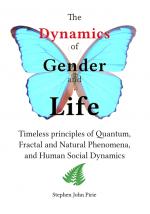There has been a LOT of talk in the media, various forums, twitter, etc, about "herd immunity" in regards to the corona virus pandemic.
The idea, basically, is that if enough people catch and subsequently become immune to the virus, the virus will "look around" for new hosts within the population, as some have suggested, and finding none available, recede and eventually die out.
That "looking around" suggests viruses are alive, seeking to reproduce like bacteria and fungi.
Scientists know that viruses aren't "alive" in a strict biological sense—they don't have active intelligence that "looks around", or reproduce themselves independently like bacteria. As Dr Kevin Stillwagon explains:
"A virus is not even a living thing. It's just a package of genetic material inside of a shell that's made of proteins and fats. It's not alive, it has no intelligence, nor the desire to attack you."1
Recently I came across an analogy which I believe is very helpful in understanding how viruses spread.
Nobel Laureate, Prof. Michael Levitt offered this analogy: that the spread of a virus through a population is like a wind blowing through a forest. A strong wind will blow down (and thus kill) old or damaged trees.
I like this analogy because it alludes to some important matters — that the wind does not "look around" for old trees, it simply blows. The wind will be harmful or fatal for those trees that are in poor soils, with inadequate water and poor nutrition — trees that we could say have "comorbidities".2
We know now that the major determinants of disease are psycho-social, which relates to one's nutrition, family support etc. (social situation), community support, positive beliefs, etc (psychological health). The forest analogy fits the known factors in disease — poor nutrition (soil), a lone tree out on its own that lacks the protective wind-dampening effect of forests (lack of social support).
In other words to enjoy good health, resilience and naturally acquired immunity to disease, people would best improve their "psycho-social" environment by engaging mindfulness and ease (to offset dis-ease → disease), social engagement and support, positive belief-system, purpose and meaning, healthy diet (organic veges, vitamins, clean water), good physical environment (shelter, sanitation) and they'd naturally ward off infections, including Covid-19, as Nature intended.
The talk of "herd immunity" all points to a lack of understanding that the biome, environments and populations within which we live, are all part of a global "self-organizing system" (some call Gaia).
The SOS (self organizing system3) in which disease is in reality a dis-ease within the system, will be corrected by a "strong wind" blowing through the populace.
It behooves those who are fearful of getting the virus to pay particular attention to their belief-system, their nutrition, and other psycho-social factors that are primary to their wellbeing and health. In particular, to analyze the nine factors common to those who overcome terminal cancer, as a signpost of what factors are important to health and wellbeing.
It's particularly important to recognise that those positive factors are being countermined by the many media reports that invoke fear within the population. As Dr Bruce Lipton explains in this video, fear and stress impair your immune system, stunt cell growth and replacement, and dull cognitive reasoning. In other words, news reports (of viruses, lock-downs, etc.) that stress or frighten people are bad for their health and their capacity to think clearly.4
Social distancing is likewise counterproductive to good health — our immune-system works best when exposed daily to the local biome, environment etc. Living in a quarantined bubble would, when re-engaging our local environment, overload our immune-system to quite negative effect.
- 1. ‘Against The Wind’ Episode 43: Dr. Kevin Stillwagon Forced Into Early Retirement + What the FAA Must Do to Keep Us All Safe.
- 2. "comorbidities"—such as diabetes, heart disease, poor nutrition, impaired immune-systems—have been observed in the vast majority of corona-virus deaths. Like a wind in the forest, the virus does not target specific individuals, the virus simply has greater effect upon those with said comorbidities.
- 3. In the case of a human population, it's obviously a self-organising sentient system — SOSS. Less obvious but still valid is that all of reality is an SOSS or more technically a holodynamic SOSS, as explained in greater detail in my book The Dynamics of Gender and Life.
- 4. as demonstrated by the irrational panic-buying of toilet paper
